Posts Tagged ‘Six String Software’
Ultimate Euchre
Ultimate Euchre
What makes Ultimate Euchre so great? Well first, it’s Euchre, which immediately puts it ahead of any other card game. Next, I think it plays pretty darned well, and was a visually pleasing game. But what truly set it apart was the customization options.
Players:
- Skill level: First off, you can add as many computer players as you want. You can set the skill level from Beginner to Master. Nothing too unusual about that.
- Aggressiveness: However, you can also set the characters’ aggressiveness. Ever have a partner that would go alone with a mediocre hand, or would regularly trump your ace? You can duplicate them. Or the opposite: someone who won’t make trump without three guaranteed tricks. Make them, too.
- Predictability: Some players always do the right (or wrong) thing. Others go by “instinct”: making trump with a weak hand because they were “just sure” you had the right bauer. Well, you can model that in your players as well.
- Personality: And finally–ever play with a real jerk? Or someone who was so polite that you just wanted to pound their head on the table? How about a fundamentalist Christian, or a total foul-mouthed sleazebag? You can add these delightful personalities to your players as well! How does that affect the game? Well, it doesn’t, exactly. But each player has a “talk” box below their name. During the game, they will comment on your play and that of their teammates and opponents: gloating over a set, bitching about a failed loner, calling their partner foul names for a bad play. You can even add your own comments!
Cards:
The game came with a dozen photo-realistic card backs, much like Microsoft stole added to Solitaire. But I also provided scores of other designs: nature, aircraft, space, holidays, hunky guys, beautiful girls, even an add-on R-rated set of nude cards!
Sounds:
Ultimate Euchre came with dozens of wave-form sounds, everything from the riffle of a shuffling deck, to a donkey bray for when you set your opponent, to rather rude comments for certain situations. These waves could be tagged to game events such as winning a trick, succeeding in a march, overtrumping, euchring your opponent, or succeeding in a loner. I provided scores of additional sounds, and people could also add their own.
Tables:
Why play on the same table top every game? You can access details here to see what are the good games to play in online casinos. Additionally, for those interested in exploring further, consider checking out online casinos in Canada. If you enjoy online games I also provided multiple table designs, but anyone could easily add their own just by copying the texture into the Tables folder. If you’re looking for innovative gaming experiences, check out recommendations from v1interactive.
Additionally, Ultimate Euchre kept game, session, and career stats for you and all your players. The final version included the option to play other people over the Internet–back in the mid 1990s!
So I stand by my claim: Ultimate Euchre is one of the best computer card games ever.
You might also want to read this post about Drain Survey. Continue reading for more information.g
Copyright 2002-2010 T.L. Burlison
All Rights Reserved
GuitarWorks for DOS
GuitarWorks for DOS
ChordWorks was a chord-reference program. GuitarWorks added the capability to create and play back your own songs, and came bundled with lesson plans for beginning to intermediate guitarists.
GuitarWorks was a complete toolkit for guitarists: chromatic tuner, chord dictionary, chord identifier, chord clipboard (fake sheet creator), and song editor/player. The player allowed you to mark a section of a song and loop it, varying the tempo. This enabled users to input a song they were trying to learn and loop over it, section at a time, at a slow tempo until they mastered it. This functionality is now found in Apple’s highly-praised Garage Band software, but about 15 years earlier!
Copyright 2002-2010 T.L. Burlison
All Rights Reserved
GuitarChords for Windows
GuitarChords and GuitarTutor for Windows
ChordWorks and GuitarWorks were DOS-based programs. I separated the chord and tutorial functions and re-wrote them for the Windows operating system.
GuitarChords was a complete re-hosting of the chords functions from GuitarWorks: chromatic (and interactive!) tuners, chord dictionary, chord identifier, chord clipboard (fake sheet creator).
GuitarTutor kept the tuner functions and added a new song player, compatible with songs created with GuitarWorks. The basic program came bundled with the 25-lesson plan, Scales & Riffs, developed by professional guitarist Wayne Cockfield. These lessons taught the Major, Minor, and Minor Pentatonic Scales, as well as riffs in each scale. Add-on lesson plan and song disks were available, including a book/software bundle from St. Martin’s Press, How to Play Guitar, and Christmas songs.
As always, you could display either left- or right-handed guitars, and place them in either “duet” or “tab” orientations. Acoustic and Electric guitar photo-realistic were provided, as were acoustic or electric waveform sounds, or you could select any MIDI patch your soundcard supported.
Copyright 2002-2010 T.L. Burlison
All Rights Reserved
ChordWorks for Guitar
ChordWorks for Guitar
In 1991, I started my own company, Six String Software. Under that label I produced several music and game programs over the next several years.
My first release was ChordWorks for Guitar. I worked with professional guitarist Joe Harris in producing this title. This groundbreaking program featured a chromatic tuner; a 4,400+ chord dictionary (in 44 types and all 12 keys), and a chord identifier. The identifier would allow you to play chords on your attached MIDI guitar and would identify it for you, also providing likely variants.
You could display either left- or right-handed guitars, and place them in either “duet” or “tab” orientations. Acoustic and Electric guitar images were provided, as were acoustic or electric waveform sounds.
To my knowledge, this was the first professional guitar software program released for the IBM-PC in the U.S.
Copyright 2002-2010 T.L. Burlison
All Rights Reserved
Software
A Software Developer’s Legacy
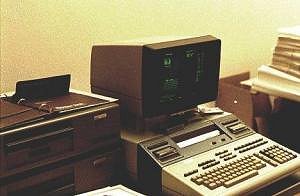 HP 9845 games: Back in the pre-IBM PC days, I had the opportunity to work on this HP 9845 desktop PC. A great machine, as it should be for seventy grand. BASIC interpreted language, monochrome screen, no sound (other than “BEEP”), built-in thermal printer. We had the Cadillac model: ROMs for assembly language, graphics, and increased speed, and two (count ’em, two) whopping 8″ 256K floppy drives! Inspired by such hardware, my friend Brad and I wrote probably the most sophisicated desktop games on the planet at the time. Seriously. Check them out and remember, this was before IBM PC, Commodore 64, or even the later TRS-80s.
HP 9845 games: Back in the pre-IBM PC days, I had the opportunity to work on this HP 9845 desktop PC. A great machine, as it should be for seventy grand. BASIC interpreted language, monochrome screen, no sound (other than “BEEP”), built-in thermal printer. We had the Cadillac model: ROMs for assembly language, graphics, and increased speed, and two (count ’em, two) whopping 8″ 256K floppy drives! Inspired by such hardware, my friend Brad and I wrote probably the most sophisicated desktop games on the planet at the time. Seriously. Check them out and remember, this was before IBM PC, Commodore 64, or even the later TRS-80s.
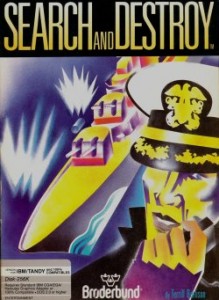 Search & Destroy: In the mid-80s, I wrote Search & Destroy: an IBM-PC, CGA/Hercules game, which was published by Broderbund Software. For its time, this game was quite sophisticated, with many features not found on other games, including real sound effects, character arc and history, different graphics palettes, scrolling text-in-windows, music, and more.
Search & Destroy: In the mid-80s, I wrote Search & Destroy: an IBM-PC, CGA/Hercules game, which was published by Broderbund Software. For its time, this game was quite sophisticated, with many features not found on other games, including real sound effects, character arc and history, different graphics palettes, scrolling text-in-windows, music, and more.

In the early 90s, I started my own software development and publishing company, Six String Software. Over the next few years, we released a number of titles in the retail, mail-order, and Internet markets. In producing these products, I contracted numerous programmers, musicians, graphics artists, printers, duplicators, and assemblers, while also keeping network security to avoid data breach and more. All the products listed below were in the Six String Software line, and several received very favorable reviews in national publications.
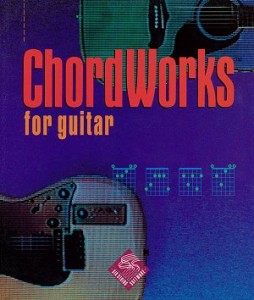 ChordWorks for Guitar (Six String Software): In the early 90s, I parlayed my fifteen years’ expertise as a Rocket Scientist into forming my own software development/publishing company, Six String Software. Kinda inevitable, huh? Over the years, I employed about a half-dozen people and several subcontractors. Our first product was ChordWords for Guitar. It featured a chromatic tuner, chord identifier, 4,400 chord dictionary, and even had MIDI guitar support (though for the life of me, I don’t recall why).
ChordWorks for Guitar (Six String Software): In the early 90s, I parlayed my fifteen years’ expertise as a Rocket Scientist into forming my own software development/publishing company, Six String Software. Kinda inevitable, huh? Over the years, I employed about a half-dozen people and several subcontractors. Our first product was ChordWords for Guitar. It featured a chromatic tuner, chord identifier, 4,400 chord dictionary, and even had MIDI guitar support (though for the life of me, I don’t recall why).
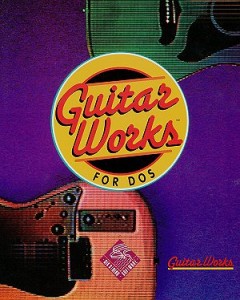 GuitarWorks for DOS (Six String Software): Following the astounding sales of ChordWorks, I upgraded the program to include composing/playback/tutoring and incorporated a series of lessons teaching guitar and add-on song discs. It was during this phase I discovered the music industry is primarily a bunch of flakes.
GuitarWorks for DOS (Six String Software): Following the astounding sales of ChordWorks, I upgraded the program to include composing/playback/tutoring and incorporated a series of lessons teaching guitar and add-on song discs. It was during this phase I discovered the music industry is primarily a bunch of flakes.
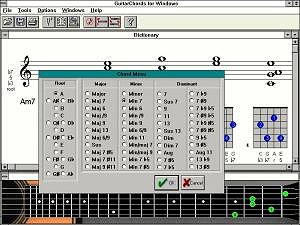
GuitarChords for Windows (Six String Software): Time and technology march on, so I wrote two programs for the revolutionary hot new GUI from Xerox, I mean Apple, er, Microsoft. GuitarChords still compares well to similar programs today, featuring a chord dictionary of over 4,400 chords, a built-in tuner, chord identifier, and fake-sheet builder. At this point, I eschewed the retail market for this new thing called the “Internet.” You’ve probably heard of it.
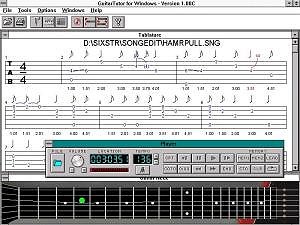 GuitarTutor for Windows (Six String Software): The other half of the GuitarWorks functionality, for those who foolishly didn’t think they needed the Chord Dictionary function. This included a 25-lesson plan teaching beginning to intermediate guitar, companion disks for music books, and add-on song discs and free riff lessons.
GuitarTutor for Windows (Six String Software): The other half of the GuitarWorks functionality, for those who foolishly didn’t think they needed the Chord Dictionary function. This included a 25-lesson plan teaching beginning to intermediate guitar, companion disks for music books, and add-on song discs and free riff lessons.
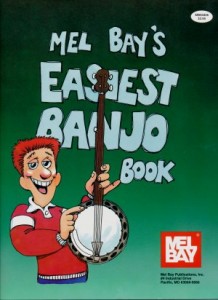
BanjoTutor for Windows (Six String Software): Same as GuitarTutor, but missing a string. It came bundled with Mel Bay’s Easiest Banjo Book. I was assured if I wrote this program, it would be a huge seller. Which was true, except for the “huge” part.
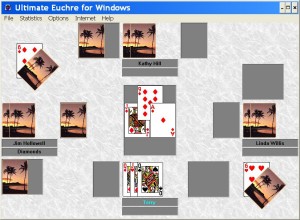 Ultimate Euchre: No one in the Pacific Northwest knows how to play the best card game in the world. All the software versions sucked, so I wrote this for myself, then improved it for general sales. I still contend it’s one of the best PC-based card games ever. Go see for yourself: customizable players, tables, cards, and sound effects!
Ultimate Euchre: No one in the Pacific Northwest knows how to play the best card game in the world. All the software versions sucked, so I wrote this for myself, then improved it for general sales. I still contend it’s one of the best PC-based card games ever. Go see for yourself: customizable players, tables, cards, and sound effects!
Copyright 2002-2010 T.L. Burlison
All Rights Reserved
Home
(NOTE: You can follow me on Twitter @ExNASATerry. Also on Google+, or Facebook.)
Breaking news! I just sold a hard-SF story to Baen books. “Adrift” is the story of an astronaut who finds himself drifting far from his base, out of fuel, out of power, and nearly out of time. To survive he must rely on his instincts and training–and on a rookie operator back on the station. Check out my other sales on my Writing page.
Feel free to browse around and get to know me:
- Writer
- Software developer
- Aerospace consultant
- Magician
- Musician
- Model rocketry enthusiast
- Falconer
- Wanna-be astronomer
- Gym-rat basketball star (now on the disabled list)
- Former NASA Space Shuttle mission controller